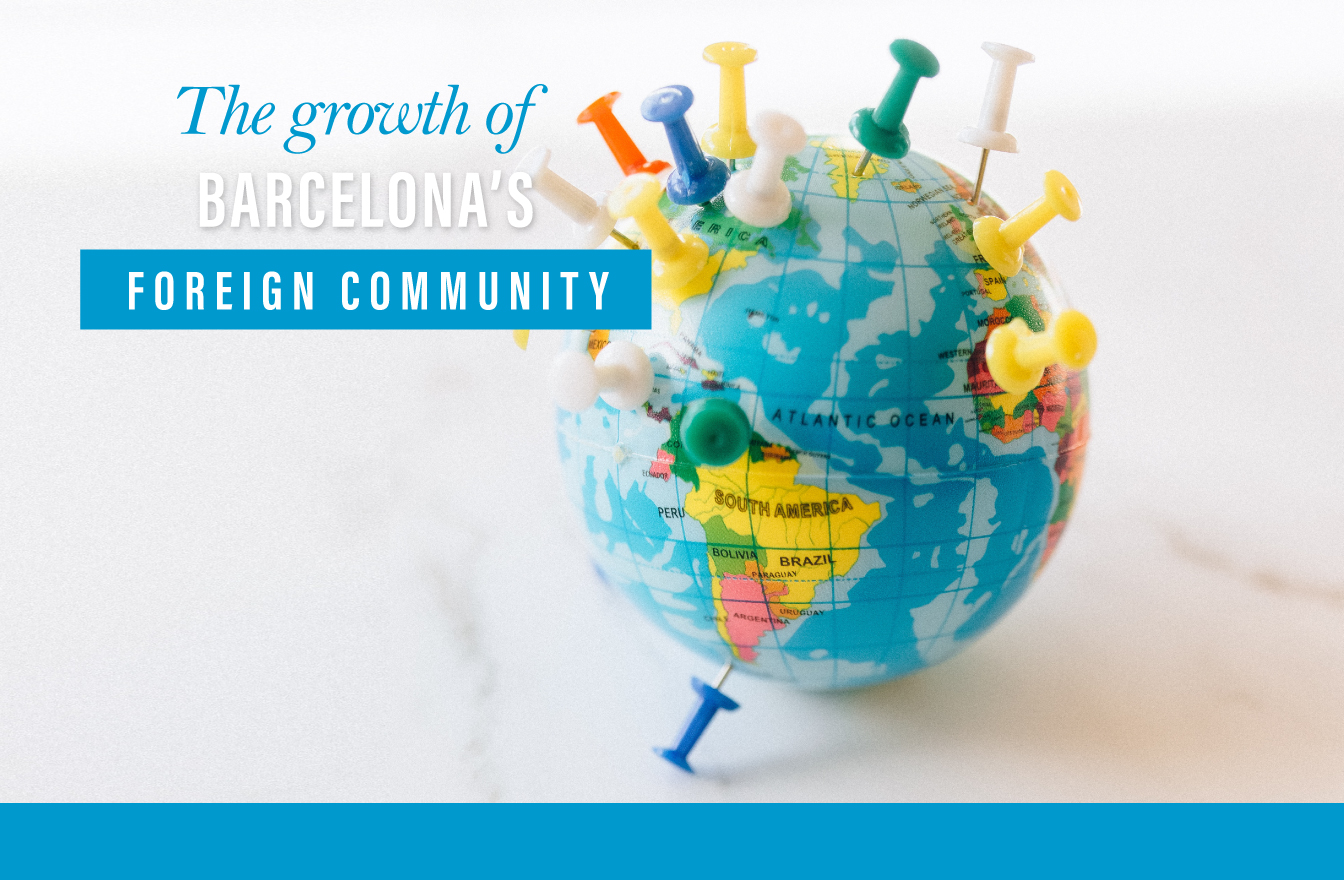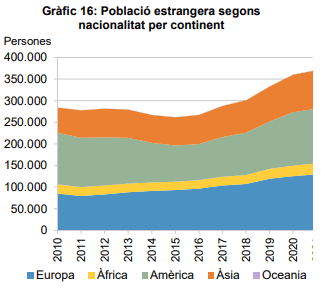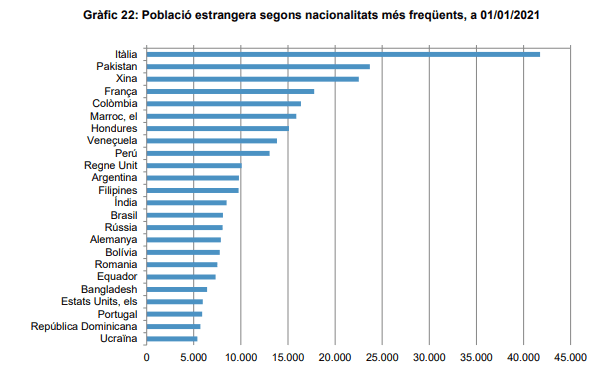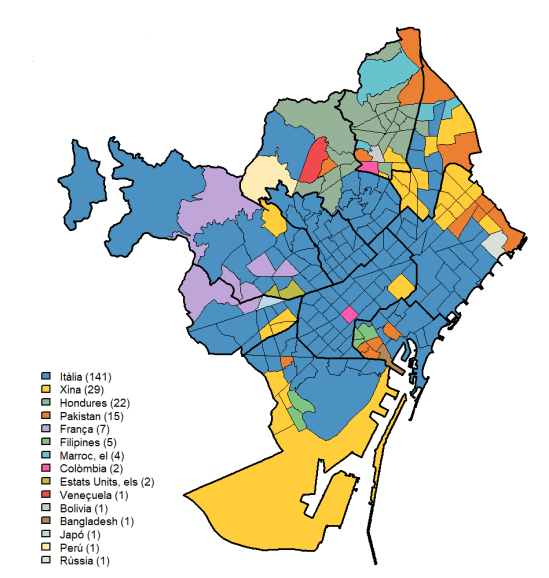
As with other major cities, Barcelona is becoming increasingly heterogeneous with regards to its population. Globalisation, a progressive outlook as well as economic and technological advances are just some of the reasons that increasing numbers of foreigners are choosing the Catalan capital as their home.
Barcelona has gone from having a foreign community of just 1.5% in 1991 to over 22% at the beginning of 2021. The rise of the foreign population began in the first half of the last decade and has since remained relatively stable. Barcelona’s recent city census reveals some interesting micro trends about the city’s foreign population which we outline here.
Barcelona’s overall population has risen slightly during the last five years, mainly due to migration, but in 2020 it began to decrease. 6,200 residents left the city last year. This was down to increased mortality, a decreasing birth rate and slowing migration, all of which were a direct consequence of the Covid-19 pandemic.

Barcelona’s foreign population increased by 2.9% in 2020 however, and foreigners now account for 22.4%, or 371,527 of the total 1,660,314 people registered in the city.
The Italian and British community is growing
179 foreign nationalities currently reside in Barcelona. The nationality which saw the biggest increase during 2020 were the Italians who saw their population rise by 1,896 people out of a total of 41,759.
They were followed by the Columbians and then the British, who have seen their population increase from 9,025 at the beginning of 2020 to 10,086 at the start of 2021, mainly due to the exodus from the UK after Brexit. As well as the British, Columbians and Italians, the most common nationalities in Barcelona continue to be the French, Chinese, Pakistanis, Argentinians and Peruvians.

By continent, most of Barcelona’s foreign population is from Europe and the Americas with just under 130,000 people in each of the two groups, with increases of 3.5% and 2.7% respectively in 2020. Barcelona’s Asian population increased by 2.5% to 89,031, the number of African residents went up by 2.8% to 25,283 and Australasian residents increased by 3.1% to 638 by January 2021.
Interested in selling your luxury property? Visit our website to find out all the information you need:
We sell your flat now in Barcelona
Where foreigners choose to live in Barcelona
The increase in the foreign population in Barcelona during 2020 is apparent in 64 out of the city’s 73 districts. The greatest increases were seen in Eixample (+2,195 people) and Sant Martí (+1,352 people), the two most populated districts in the city.
Of the total number of foreigners registered in Barcelona, 68,272 (18.4%) currently live in the Eixample district, while in Ciutat Vella there are 57,734 foreigners (15.5%) followed by Sant Martí with 50,883 foreigners (13.7%).

“At Bcn Advisors we have mainly registered significant interest from US and French citizens in buying property in the city. Stable property prices, combined with the current low interest rates, mean that it is still an ideal time to invest in property in Barcelona, and sellers should also take advantage of this, as foreign buyers tend to offer higher prices,” says Francisco Nathurmal, founder and CEO of Bcn Advisors.
Profile of foreign residents in Barcelona
Regarding the profile of Barcelona’s foreigners, there is a fairly even split between men and women (183,076 women vs 188,451 men). Foreigners have an average age of 34.2 years, slightly higher than the previous year and almost 13 years less than the average Spaniard living in Barcelona.
EU foreigners are, on average, slightly older (34.7 years) than non-EU foreigners (34.0 years). 41.7% of foreigners living in Barcelona have a university degree and that figure increases to 62.9% when looking only at EU foreign residents, a proportion that is nearly twice the Spanish population. Almost 60% of foreigners living in Barcelona have been living there for between one and five years.
“Despite the limitations brought about by the pandemic, Barcelona continues to be a magnet for foreigners both for lifestyle and work. The city is consistently ranked highly for its quality of life, something which we are all valuing more since the health crisis. It is also a fast-growing hub for innovation and entrepreneurship with new start-ups emerging every month. Many who arrive thinking they are going to stay for a few years end up staying for much longer, choosing to have families and make this stylish and vibrant city their home,” comments Francisco Nathurmal.


 Evolution of the Barcelona real estate market: Q4 2024
Evolution of the Barcelona real estate market: Q4 2024
 Barcelona property price forecast 2025
Barcelona property price forecast 2025
 Evolution of the Barcelona real estate market: Q3 2024
Evolution of the Barcelona real estate market: Q3 2024
